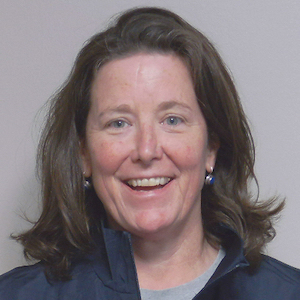From UW–Madison Graduate School communications
Nora Smith has degrees from two land-grant universities (Montana State and UW–Madison) as well as Harvard Divinity School (MTS ’94). She earned her Ph.D. from the UW–Madison School of Education’s Department of Educational Leadership and Policy Analysis in 2004.
Smith has worked in a variety of administrative and instructional roles in academia; she’s also a dedicated foodie, and has gained a lot of experience over the years working in restaurants and bakeries.
She now serves as assistant director for Residential Education at Montana State University (MSU) in Bozeman, Montana. Following is a Q&A with Smith.
Tell us about your path from graduate school to your current position.

My path isn’t traditional, in any academic sense, and I was very fortunate at UW to have mentors who appreciated and fostered my interdisciplinarity. As I finished my Ph.D. work in Madison, I started working in the First Year Seminar program at Montana State University. I served as director of that program for a few years, which got me really involved in academic administration, teaching across FYE (First-Year Experience) courses, assessment, and advising. I’ve gained some far-flung experience in academic affairs as well as student affairs, and my current position demands a healthy balance of practical wisdom and theory (which makes it a dream job!).
What do you do in your current role?
I’m helping to envision, plan, and implement a residential curriculum for MSU. We have an on-campus population of about 4,200 residents from many different walks of life, so every day in this university village is compelling and unique.
What do you like about this job? What is challenging?
MSU is a remarkable place to live and learn, and I’m part of an amazing leadership team that has a lot of heart and energy. My position was created out of a strategic restructuring of the division last year, so I’m getting to invent the office and invoke some skills (strategic planning, program evaluation and assessment) that require short-term focus and long-term impacts. I’m entrenched in undergraduate culture and sub-cultures, and so of course, I love the multi-generational contexts of this work.
The most challenging aspect of the job? Convincing folks that there’s life beyond social media and tiny screens!
What skills from graduate school are the most useful to you in this job?
I was very fortunate to have an advisor (Professor Emeritus Jay Stampen) who taught and (still) teaches that intellectual work has to be informed by the most pressing issues, that the academy must do work that matters in the ‘real world.’ He’s a political scientist and he modeled a broad research awareness and agenda with local and global impacts. My training was rooted in the Wisconsin Idea and balanced with multiple perspectives and approaches to problem solving. That groundedness (in civic engagement and social justice) continues to structure my work ethic.
What kinds of things did you do as a student that made you competitive as a job candidate?
I gained a lot of insight and awareness from the diverse membership of my doctoral committee, and I benefitted from an intensely collegial doctoral cohort. We engaged in many opportunities to serve at the departmental level, and we embraced a lot of different kinds of opportunities to represent ELPA and the School of Education across the UW campus and system.
I worked at Willy Street Co-op and had profound friendships on the east side that buoyed my on-campus involvement. I worked at the Kohl Center in event management, and those “part-time” experiences translated into my classroom conversations around stewardship, sustainability, and continual improvement projects.
I was encouraged to “get out across campus” to ask questions about post-secondary access and attainment, and so I got in the habit of dropping by faculty office hours in Philosophy, History, and Social Work. I got to the libraries and Wisconsin Historical Society on a weekly basis, and spent time with very helpful staff members. Those “informal” interviews were an important training ground for my dissertation research.
What advice do you have for current graduate students interested in this type of career?
Be adaptable and cast your aspirational nets as widely as possible! Your avocational talents and energy will help you overcome any vocational obstacles. And keep your eyes on the prize: it’s okay to prioritize finishing the degree. Most importantly: enjoy your time in Madison. It’s a world-class town with a world-class university, and there are resources for you in every nook and cranny.